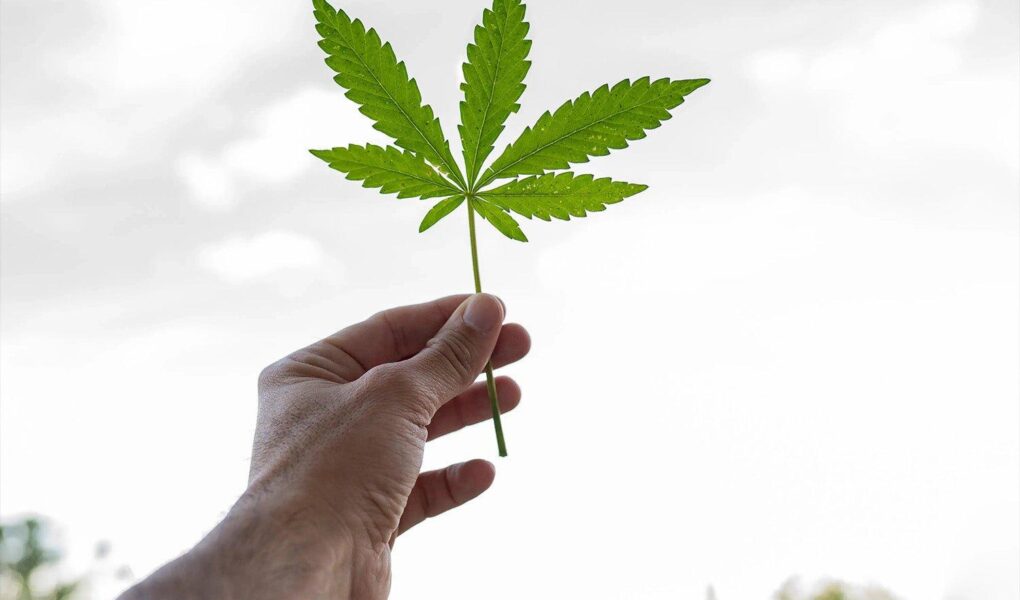In a world where the pursuit of cognitive clarity often clashes with the allure of escape, the debate surrounding marijuana’s effects on the mind has captured the attention of researchers and casual users alike. As more states legalize cannabis for both recreational and medicinal purposes, questions linger about its impact on our mental faculties—particularly short-term memory. Can the same plant that some hail as a tool for relaxation and creativity also cloud the very essence of our thoughts? This article delves into the intricate relationship between marijuana and memory, exploring the science behind how cannabinoids might influence our ability to recall recent events, and what that means for users and society at large. Join us as we unravel the complexities of this topic, navigating through scientific studies, anecdotal evidence, and the broader implications of what it means to remember—and forget—in an era of changing perceptions about cannabis.
Table of Contents
- Impact of Marijuana on Cognitive Functions
- Understanding Short-Term Memory and Its Vulnerability
- Exploring the Evidence: Studies on Marijuana and Memory
- Strategies to Mitigate Memory Impairment While Using Marijuana
- Q&A
- In Retrospect
Impact of Marijuana on Cognitive Functions
The relationship between marijuana use and cognitive functions, particularly short-term memory, has been a subject of extensive research and debate. Numerous studies indicate that cannabinoids, the active compounds in marijuana, can have a significant impact on cognitive processing. When consumed, these substances interact with the endocannabinoid system, which plays a crucial role in memory formation and recall. As a result, users may experience difficulty with tasks that rely on short-term memory retention, leading to experiences such as:
- Difficulty in recalling recent events.
- Challenges in multitasking.
- Impaired learning during intoxication.
The extent of these cognitive impairments often varies depending on several factors, including the strain of marijuana, dosage, and the individual’s tolerance level. Research shows that acute effects can diminish significantly after the drug’s effects wear off; however, chronic use may lead to longer-lasting cognitive deficits. An analysis of various studies highlights this distinction, as illustrated in the table below:
| User Category | Short-Term Memory Impact |
|---|---|
| Occasional Users | Minimal impact on memory recall. |
| Frequent Users | Significant decrease in memory performance. |
| Heavy Users | Prolonged and noticeable impairment. |
Understanding Short-Term Memory and Its Vulnerability
Short-term memory, often referred to as working memory, is a cognitive function that allows individuals to temporarily hold and manipulate information. This type of memory is crucial for performing everyday tasks, such as remembering a phone number long enough to dial it or following directions. However, short-term memory is inherently fragile and can be easily disrupted by various factors, including stress, fatigue, and certain substances. The complexity of short-term memory lies in its capacity to hold only a limited amount of information at any given time, typically around seven items for most people. This limitation makes it susceptible to interference and decay, which can further complicate the retrieval of information when needed.
Interestingly, research into the effects of marijuana on cognitive functions has brought to light its potential influence on short-term memory. Studies suggest that the active compound in marijuana, THC (tetrahydrocannabinol), can impair the brain’s ability to encode new information, leading to challenges in recalling it later. Some key points to consider include:
- Impairment during intoxication: THC’s impact on memory encoding can hinder a person’s ability to remember new experiences and learning.
- Long-term versus short-term effects: While the immediate effects on memory can be significant during usage, some users report variable recovery of cognitive function after discontinuation.
- Variability among users: The impact on memory may differ widely among individuals, depending on factors such as frequency of use, dosage, and personal brain chemistry.
Exploring the Evidence: Studies on Marijuana and Memory
Research on the effects of marijuana on memory has become a pivotal area of interest in both psychological and pharmacological studies. Various studies have suggested that compounds in marijuana, particularly THC (tetrahydrocannabinol), can influence short-term memory performance. Some findings indicate that users might experience:
- Impaired Recall: Participants reported difficulties in recalling newly learned information.
- Altered Attention Span: Marijuana might lessen focus, making it challenging to absorb new data.
- Variable Effects: Individual responses can differ substantially based on factors such as dosage and frequency of use.
Conversely, there are studies that propose a more nuanced view of this relationship. Certain research highlights that while acute use of marijuana can hinder memory formation, long-term users might adapt and show different cognitive patterns. One study illustrated this with the following results:
| Group | Immediate Recall (%) | Delayed Recall (%) |
|---|---|---|
| Non-Users | 85 | 78 |
| Occasional Users | 70 | 60 |
| Frequent Users | 72 | 65 |
This illustrates that while marijuana may initially affect memory recall negatively, habitual users might develop coping mechanisms that partially mitigate these deficits. The complexity of the relationship between marijuana use and short-term memory remains an intriguing subject for further exploration, urging more research to unravel its intricate dynamics.
Strategies to Mitigate Memory Impairment While Using Marijuana
While enjoying marijuana, it’s essential to consider strategies that can help mitigate potential memory impairment. One effective approach is to choose strains wisely. Opting for strains that are known for their relaxing but not overly sedative effects might help maintain cognitive function. Additionally, consuming marijuana in moderate amounts can further prevent memory lapses. Limiting your intake ensures that you experience the desired effects without overwhelming your cognitive abilities. Furthermore, staying hydrated and nourished is critical; maintaining proper hydration and nutrition can support your brain health, making it easier to keep your memory sharp during consumption.
Engaging in cognitive exercises can also be beneficial. Activities such as puzzles, memory games, or even engaging conversations can stimulate the mind and counteract some of the cognitive impacts of marijuana. Incorporating regular exercise into your routine is another key factor; physical activity is known to enhance brain function, improve mood, and contribute to overall mental clarity. Lastly, practicing mindfulness and stress management techniques, such as meditation or yoga, can help improve memory retention, allowing you to enjoy marijuana without the fear of forgetfulness.
Q&A
Q&A: Can Marijuana Reduce Short-Term Memory?
Q: What is the relationship between marijuana and memory?
A: Marijuana, particularly its active compound THC (tetrahydrocannabinol), interacts with the endocannabinoid system in our brains, which plays a role in memory formation and retrieval. Research suggests that use of marijuana can impair short-term memory, influencing the ability to absorb and recall information in the moment.
Q: How does marijuana affect short-term memory specifically?
A: When marijuana is consumed, THC binds to cannabinoid receptors in the brain, particularly in areas associated with memory and learning, such as the hippocampus. This binding can hinder the brain’s ability to process incoming information, leading to difficulties in maintaining focus and relying on short-term recall.
Q: Are the effects of marijuana on memory permanent?
A: The effects of marijuana on memory are generally not permanent. While short-term use can lead to impairments in memory function, studies indicate that when users refrain from using marijuana, cognitive functions typically return to baseline levels. However, heavy and prolonged use may lead to more lasting changes.
Q: Does the strain of marijuana influence memory impairment?
A: Yes, the strain can play a significant role. Strains with higher levels of THC are more likely to cause memory impairment, whereas those with a balanced ratio of THC and CBD (cannabidiol) might mitigate some negative effects. CBD is known for its potential therapeutic benefits and may even reduce some of the cognitive deficits associated with THC.
Q: Is everyone affected by marijuana in the same way regarding memory?
A: No, individual responses to marijuana can vary widely based on several factors, including genetics, dosage, frequency of use, and individual tolerance levels. Some may experience notable memory issues, while others might find the impact less pronounced or even negligible.
Q: Are there any potential benefits of marijuana for memory or cognitive function?
A: While marijuana can impair short-term memory, some research indicates that certain compounds in cannabis may offer neuroprotective effects or aid in conditions like PTSD or Alzheimer’s disease. However, the impact on memory varies with individual circumstances and requires further study for definitive conclusions.
Q: What should one consider if they are worried about memory loss and marijuana use?
A: If memory loss is a concern, it’s important to reflect on usage patterns and consider the method of consumption, strain selection, and frequency of use. Consulting a healthcare professional can provide personalized guidance, particularly for those using marijuana for therapeutic purposes.
Q: Are there alternatives to marijuana that might also impact memory?
A: Yes, there are various natural remedies and cognitive enhancers that some individuals explore, such as ginkgo biloba,omega-3 fatty acids, and certain nootropics. Engaging in regular physical exercise, maintaining social connections, and getting sufficient sleep are also vital for preserving memory function.
Q: does marijuana definitively reduce short-term memory?
A: While there is substantial evidence linking marijuana use, particularly strains high in THC, to short-term memory impairment, the effects can be temporary, vary by individual, and depend on several factors. Balancing the therapeutic benefits with potential cognitive drawbacks is key for users.
In Retrospect
In the ever-evolving landscape of cannabis research, the relationship between marijuana and short-term memory continues to spark curiosity and debate. As we close the chapter on this exploration, it’s clear that while some studies suggest a potential link between marijuana use and memory impairment, the nuances of individual experiences and biological responses paint a far more complex picture.
As society navigates the shifting tides of marijuana legalization and its medicinal applications, it’s essential to approach the topic with a discerning mind. Whether you are a user, a researcher, or simply an interested observer, understanding the multifaceted effects of cannabis on cognitive functions is crucial.
The journey into the depths of our memory, influenced by the substances we choose, is far from complete. As science continues to peel back the layers, we encourage readers to stay informed, engage in open dialogue, and consider the broader implications of marijuana use on mental faculties. After all, knowledge is the most potent tool we have in making choices that resonate with our health and well-being. Much like our memories, the conversation about cannabis is evolving—let’s ensure it stays insightful and informed.



